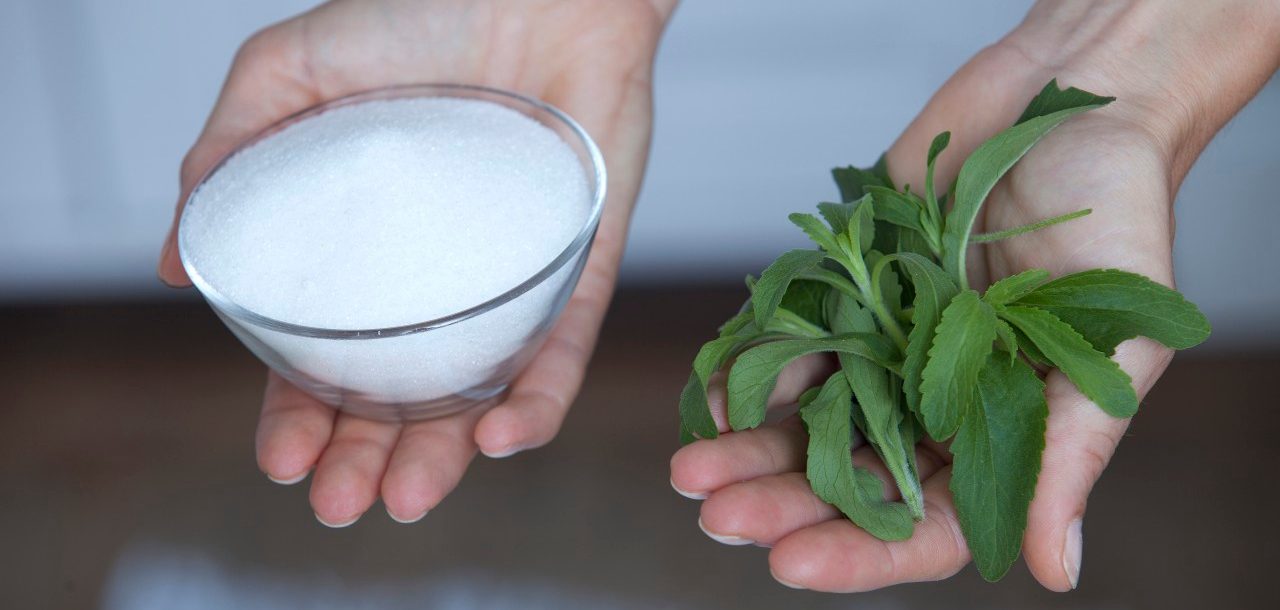Are Artificial Sweeteners Good for You?

Are artificial sweeteners good for you — or at least better than sugar? It depends which one. Should you try natural sweeteners instead?
Are artificial sweeteners good for you? Actually no, though allullose, one of the newest, may be the exception.
The main reason to choose artificial sweeteners is to manage your blood sugar levels or your weight. But even when sugar substitutes have zero or very few calories, they still could act like ordinary sugar, promoting weight gain and raising blood sugar levels.
It may sound odd that you could gain weight from a product with zero calories. The reason is that the sugar substitutes may boost your appetite and change the microbe balance in your digestive system, tilting it towards species that extract more calories from food and trigger fat build up.
YOU MIGHT ALSO LIKE: Staying Slim Is Harder Than Ever
Artificial sweeteners
The effect on blood sugar has shown up in both mice and humans. In one study, 10-week-old mice ate a daily dose of aspartame (NutraSweet, Equal), sucralose (Splenda), or saccharin (Sweet and Low), all sugar substitutes. Another group of mice drank water laced with either glucose or sucrose — two kinds of sugar. After fewer than three months, the mice on the artificial sweeteners had higher blood sugar levels.
Similar results have emerged in a test of sucralose or acesulfame-K (Sunnett, Sweet One) – two common sugar substitutes. One group of volunteers consumed sweeteners equivalent to what you’d get if you drank 1.5 quarts of an artificially sweetened beverage each day. Another group got a placebo pill. After two weeks, the group consuming the sweeteners had experienced changes in their body's response to sugar, but the placebo group had not.
Still, we’re more diverse than mice, and artificial sweeteners affect people differently. In another study, researchers compared the results among seven lean volunteers who normally didn’t eat any artificial sweeteners. After five days on a saccharin diet, three of them didn’t show significant boosts in their blood sugar and four of them did. The healthier three may have begun the experiment with a healthier microbiome, the researchers suggested.
Sugar alcohols
Despite the word alcohol, these sweeteners won’t make you tipsy and are safe for people who steer clear of alcohol. Several of them occur in fruits and vegetables. They do have some calories — but not as many as in ordinary sugar. The main risk is diarrhea. The most common is xylitol, which you’ll see in mints, toothpaste, and chewing gum.Erythritol (Swerve, ZSweet), derived from cornstarch, is a little less sweet and less caloric than xylitol. It is the main sweetener in the combination product Truvia.
For many jelly spreads and soft candy, manufacturers use another sugar alcohol: sorbitol.
Then there’s maltitol, which is almost as sweet as sugar, with about half the calories. It can cause spikes in blood sugar, so stay away if you are diabetic or even pre-diabetic.
Check labels and you might see isomalt, lactitol, and hydrogenated starch hydrolysates in food products — all sugar alcohols.
Sugar alcohols contain fiber and may be prebiotics, feeding healthy bacteria in your gut, along with other benefits. For example, xylitol, erythritol, and sorbitol may be good for your teeth.
Natural sweeteners
In Paraguay and Brazil, people have chewed the sweet leaves from the stevia rebaudiana bush for centuries. There is some concern that stevia could lower blood pressure and interact with medications. The U.S. Food and Drug Administration (FDA) does not consider stevia leaf or all extracts safe. However, it allows food manufacturers to use one chemical in stevia leaves, rebaudioside A, as a food additive.
Truvia contains both stevia and erythritol.
Monkfruit, also known as siraitia grosvenorii or luo han guo, is a fruit native to southern China and northern Thailand. People use monkfruit extracts to sweeten food, now available in the form of granules, powders, and liquids. The extract is super-sweet yet contains zero calories, carbs, or sugar, and the FDA considers it safe. But it can be expensive and some people don’t like the taste.
Allullose (DOLCIA PRIMA), also called D-psicose, is a natural but rare sugar present in wheat, figs, raisins and a few other foods. It has zero calories, passing into our urine, and surprisingly, may even improve blood sugar regulation. High blood sugar after a meal is a sign of diabetes. In a small study, volunteers who ate 5 grams of allulose with a meal had lower blood sugar levels 30 and 60 minutes later than a group that just ate the meal.
However, it’s important not to overdo allullose, since it can cause digestive symptoms like diarrhea, bloating and pain. Stick to .4/g in any one meal and .9/g per meal.
It’s also important not to rely on dieting to be healthy. “Diet foods” with artificial sweeteners typically aren’t otherwise nutritious. To avoid diabetes and keep your weight in a good range, you’ll need to consistently eat a nutritious diet with the appropriate amount of calories for your exercise level. A yo-yo weight pattern, with big rises and falls, will lead to weight gain overall.
Updated:
June 14, 2019
Reviewed By:
Janet O’Dell RN